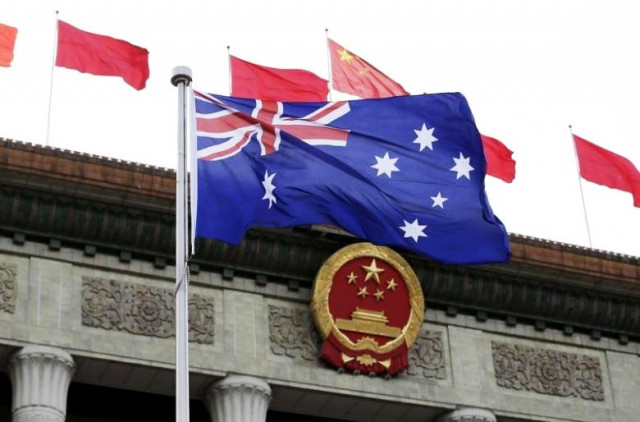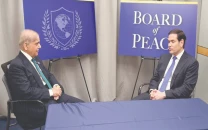Australia must choose between United States and China: US Army official
'I think the Australians need to make a choice, it's difficult to walk this fine line between balancing the alliance'

Australian flag flutters in front of the Great Hall of the People during a welcoming ceremony for Australian Prime Minister Malcolm Turnbull (not in picture) in Beijing, China, April 14, 2016. PHOTO: REUTERS
China to supply Pakistan with eight new attack submarines
"I think the Australians need to make a choice ... it's very difficult to walk this fine line between balancing the alliance with the United States and the economic engagement with China," US Army Assistant Chief of Staff Colonel Tom Hanson said on Australian Broadcasting Corp. Radio.
"There's going to have to be a decision as to which one is more of a vital national interest for Australia," he said. Hanson said the comments reflected his personal view and were not necessarily that of the US government.
The comments follow the publication of a parliamentary booklet warning Australian lawmakers to treat Chinese motives in the region with caution.
Kerry arrives in India for trade, security talks
Australia, a staunch US ally, has previously drawn criticism from China for running surveillance flights over disputed islands in the South China Sea, and supporting US freedom of navigation exercises there.
However, Australia has not conducted a unilateral freedom of navigation voyage of its own.
"Clearly China believes that they have an opportunity and they feel empowered to flout that, and a demonstration by Australia would be welcome," Hanson said.
Australian Foreign Minister Julie Bishop said in response to Hanson's comments that the US role in the Indo-Pacific region was as important now as it had ever been.
Kerry says no military solution to South China Sea dispute
"We are balancing relationships between our largest strategic ally and our largest trading partner with deft diplomacy, consistency and pragmatism,” Bishop said in a statement.
China is Australia's biggest trading partner and a large source of foreign investment, spending $11.1 billion on Australian assets, mostly property, in 2015, accounting and advisory firm KPMG and the University of Sydney have said.



















COMMENTS
Comments are moderated and generally will be posted if they are on-topic and not abusive.
For more information, please see our Comments FAQ